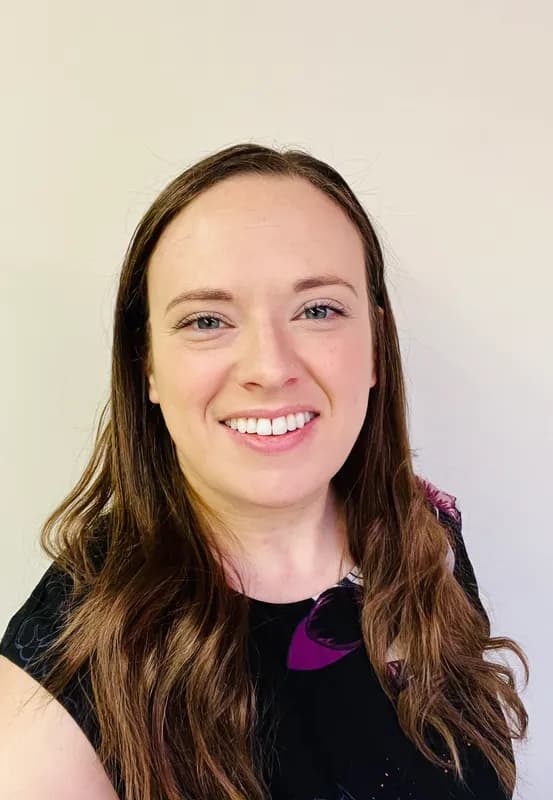Therapy for social anxiety

Walking into a room can feel like stepping onto a stage where everyone is watching for you to slip up. Your mind races about what to say, how you look, and whether you sound foolish. Your heart pounds and your face heats up. You rehearse conversations that never happen and replay the ones that did, searching for signs that people judged you. You may turn down invitations, avoid opportunities, or keep people at a distance because the fear of being seen feels overwhelming. This is not shyness. It is social anxiety, and it limits your life in ways you never wanted. You may know the fears are irrational, but that does not make them disappear. Therapy can help you step out of constant self monitoring and learn to be present again, instead of watching your life from the sidelines.
Understanding social anxiety disorder
More than just shyness
Social anxiety disorder is an intense, persistent fear of social situations where you might be scrutinized, judged, or embarrassed. It's not about being introverted or preferring small gatherings. It's about the fear being so overwhelming that it controls your choices and significantly affects your life. You might dread specific situations like public speaking, eating in front of others, or making phone calls. Or you might fear most social interactions, experiencing anxiety about casual conversations, dating, job interviews, or simply being in public spaces. The fear often centres on appearing anxious, awkward, boring, or stupid, and being negatively evaluated because of it.
The internal experience
Before a social event, you might spend hours or days worrying about it. You rehearse what to say, imagine worst-case scenarios, and consider ways to avoid going. During the event, you're hyperaware of yourself: how you sound, how you look, whether you're saying the right things. You notice every silence, every shift in someone's expression. Your body betrays you with symptoms you fear others will notice: sweating, blushing, trembling, or a shaky voice. Afterwards, you dissect the interaction for hours or days, convinced you embarrassed yourself or that people think poorly of you. This cycle is exhausting and isolating.
Social anxiety disorder in Canada
Data from Statistics Canada.Read the Statistics Canada report
Different presentations
Some people have performance-only social anxiety, where the fear is limited to situations like public speaking, performing, or presentations. Others have generalized social anxiety affecting most social interactions. You might fear being the centre of attention or fear any situation where others could observe you. Common feared situations include speaking in meetings, eating or drinking in public, making small talk, attending parties, dating, using public restrooms, making phone calls, or simply walking into a room where people are already gathered. The specific fears vary, but the underlying worry about judgment remains constant.
The cost of constant fear
Career limitations
Social anxiety can block your professional growth. You may avoid jobs that involve presentations or client work, even when you have the skills for them. Speaking up in meetings feels too stressful, so your ideas go unheard. Networking becomes impossible, and promotions that require visibility or leadership feel out of reach. Many people stay in roles far below their abilities because these jobs require less social interaction. Over time, this leads to real financial and career setbacks.
Relationship isolation
Friendships are hard to build when social situations feel overwhelming. Invitations get declined until they stop coming. You may have acquaintances but struggle to form deeper connections because vulnerability feels unsafe. Dating can feel unbearable due to fear of rejection and constant self evaluation. Even existing relationships suffer when you avoid gatherings, cancel plans, or shy away from your partner’s social world. You want closeness but fear the interactions needed to create it.
Daily life restrictions
Everyday tasks become challenges. Making appointments, asking questions in stores, or speaking with service providers can trigger anxiety. You may avoid important care or services because they require interaction. You change your routines to avoid people you know, take longer routes, or shop when stores are empty. These adjustments shrink your world in ways others might not notice, but you feel them all the time.
How therapy treats social anxiety
Why specialized treatment works
Social anxiety isn't logical, so you can't think your way out of it. Your brain has learned to perceive social situations as threats, triggering a fear response even when there's no real danger. A therapist specializing in anxiety disorders understands this and uses approaches proven to rewire these fear responses. They'll help you challenge the beliefs maintaining your anxiety, gradually face feared situations in a structured way, and develop skills for managing symptoms. They know how to push you appropriately without overwhelming you, and they understand that progress isn't always linear.
What treatment involves
Therapy begins with understanding your specific fears, avoidance patterns, and the thoughts that fuel your anxiety. Your therapist will help you see how your beliefs about social situations, yourself, and others' judgments maintain the problem. Treatment involves both changing how you think about social situations and systematically facing feared situations to prove to your brain that they're not actually dangerous. This isn't about forcing yourself into uncomfortable situations unprepared. It's about building skills, challenging distorted thoughts, and gradually expanding your comfort zone with support.
Evidence-based treatment approaches
Cognitive behavioural therapy
CBT for social anxiety helps you identify and challenge the thoughts that fuel your fear: "everyone is judging me," "I'll make a fool of myself," "people think I'm weird," or "any sign of anxiety is catastrophic." You'll learn to evaluate these thoughts objectively, consider alternative interpretations, and develop more balanced thinking. CBT also teaches anxiety management skills and includes behavioural experiments to test your predictions. This approach has the strongest research support for treating social anxiety disorder.
Exposure therapy
Avoidance maintains social anxiety. Exposure therapy involves gradually and systematically facing feared social situations, starting with less anxiety-provoking scenarios and building to more challenging ones. You might start by making eye contact with strangers, then asking questions in stores, then attending small gatherings, and eventually handling more feared situations. Each exposure teaches your brain that these situations are safe and manageable. Your therapist guides this process, ensuring exposures are challenging but not overwhelming. Exposure therapy is often combined with CBT for maximum effectiveness.
Social skills training
Sometimes social anxiety develops partly because you haven't had opportunities to learn or practice social skills. Your therapist might teach conversation skills, assertiveness, nonverbal communication, or how to handle specific social situations. You'll practice these skills in session through role-plays before trying them in real life. Building genuine competence reduces anxiety because you feel more prepared and capable in social situations.
Attention training and dropping safety behaviours
In social situations, your attention focuses inward on your anxiety symptoms and performance. This self-focused attention actually increases anxiety and makes you less engaged. Your therapist will teach you to shift attention outward to the interaction itself. You'll also identify and eliminate safety behaviours: subtle avoidance strategies like rehearsing what to say, avoiding eye contact, or staying quiet. These behaviours maintain anxiety by preventing you from learning that social situations are safe even without them.
Medication as an adjunct
For moderate to severe social anxiety, medication can be helpful alongside therapy. SSRIs like sertraline or paroxetine are first-line medications. Some people benefit from beta-blockers for specific performance situations. Medication isn't a cure and works best when combined with CBT or exposure therapy. Your therapist can discuss whether medication might be appropriate and coordinate with your doctor if needed.
Your journey to confidence
Assessment and education
Your therapist will explore your specific fears, avoidance patterns, and how social anxiety affects your daily life. You'll learn about how anxiety works, why it persists, and why the coping strategies you've been using actually maintain the problem. Understanding that your brain has learned to perceive threat where none exists helps you see anxiety as something to manage rather than as truth about your inadequacy. You'll collaborate to set specific, meaningful goals for treatment.
Skill building and exposure work
You'll learn to identify and challenge anxious thoughts, manage physical symptoms, and shift your attention outward. Then you'll begin exposure work, starting with situations that produce manageable anxiety and gradually working up your fear hierarchy. Between sessions, you'll practice exposures in real life, gathering evidence that contradicts your fears. This phase requires courage and consistency. Your therapist supports you through difficult moments while celebrating progress. Most people notice significant improvement within 12-16 weeks of consistent treatment.
Consolidation and relapse prevention
As you successfully handle previously feared situations, your confidence grows. You're engaging in life rather than watching from the sidelines. Therapy shifts to maintaining gains, handling setbacks, and continuing to expand your comfort zone independently. You'll develop a plan for managing any future increases in anxiety. Many people find that social anxiety doesn't disappear completely but becomes manageable background noise rather than a controlling force. You learn to feel anxious and do things anyway.
Find a therapist for social anxiety
Choosing the right therapist matters. Each province in Canada has its own regulations, which is why working with a recognized professional can make a real difference in your care. Stellocare takes the uncertainty out of the process by listing only verified therapists you can trust.
The right therapist for you
No therapists found with these specialties in Ontario.
Try selecting a different province.Resources and strategies
Support and information
Toronto Shyness and Social Anxiety Support Group
A free peer-support group in Toronto focused specifically on shyness and social anxiety/phobia. Meetings are held weekly and are open to the public.Visit the support group page.
Centre for Addiction and Mental Health (CAMH) – Mood & Anxiety Ambulatory Services
An outpatient clinical service in Ontario for people with mood and anxiety disorders, including social anxiety, offering group therapy and individual treatment. Available via physician referral.Learn about CAMH MAAS.
Across Boundaries – Multicultural Mental Health Services
Offers culturally responsive mental health support for racialized communities in Toronto, including counselling and peer support for anxiety and related issues.Visit Across Boundaries.
The Insight Clinic – Publicly-Funded Anxiety Treatment Program (Ontario)
An accessible service in Ontario offering short-term evidence-based therapy for anxiety, including social anxiety, under publicly funded frameworks.Read about the program.
Anxiety Therapy Services (FTPS) – Online Therapy for Anxiety Across Canada
Offers virtual therapy for anxiety (including social anxiety) in multiple provinces across Canada (Ontario, BC, Nova Scotia, New Brunswick). Provides both individual therapy and exposure-based treatments.Visit FTPS Anxiety Therapy Services.
Strategies to start practicing
Challenging anxious thoughts
- Notice your predictions: before social situations, write down what you fear will happen. Be specific: "I'll say something stupid and everyone will think I'm an idiot." After the event, evaluate what actually happened. Most predictions don't come true.
- Question the evidence: when you think "everyone is judging me," ask yourself what evidence supports this versus contradicts it. Most people are focused on themselves, not scrutinizing you.
- Consider alternatives: if someone seems unfriendly, instead of assuming they don't like you, generate other explanations: they're distracted, tired, dealing with their own issues, or having a bad day.
Building gradual exposure
- Create your hierarchy: list social situations from least to most anxiety-provoking. Rate each from 0-10. Start exposures with situations rated 3-4, not your biggest fear.
- Practice regularly: exposure works through repetition. Face the same situation multiple times until anxiety decreases. One exposure isn't enough to create lasting change.
- Stay in the situation: don't leave when anxiety peaks. Anxiety will decrease if you stay. Leaving at peak anxiety teaches your brain the situation is dangerous and needs escape.
- Drop safety behaviours: face situations without subtle avoidance strategies. If you usually avoid eye contact, practice making eye contact. If you over-rehearse, go in with less preparation.
Managing physical symptoms
- Slow breathing: breathe in for four counts, out for six counts. Longer exhales activate your parasympathetic nervous system, reducing physical arousal. Practice when calm so it's easier to use when anxious.
- Accept the symptoms: trying to hide blushing or trembling increases anxiety. Accept that others might notice and remind yourself that visible anxiety isn't catastrophic. Most people are more understanding than you expect.
- Externalize attention: when you notice yourself monitoring your anxiety, shift focus outward. What's the other person saying? What do you notice in the environment? Engaging externally reduces symptom intensity.
Questions about social anxiety treatment
Is social anxiety the same as being shy or introverted
No. Shyness is a personality trait where you feel uncomfortable in new social situations but warm up over time. Introversion means you prefer smaller groups and need alone time to recharge, but you can enjoy and handle social situations. Social anxiety disorder is intense fear and avoidance that significantly impairs your life. You can be extroverted and have social anxiety. The difference is about interference and distress, not personality preference.
Will I have to do exposure therapy
Exposure is the most effective component of social anxiety treatment, but it's done gradually with your collaboration. You and your therapist create the plan together, and you control the pace. You're never forced into situations before you're ready. Think of exposure as practicing skills rather than facing fears through willpower alone. Most people find that exposure is less scary than they expected and that the benefits far outweigh the temporary discomfort.
How long does treatment take
Most people notice significant improvement within 12-16 weeks of consistent CBT and exposure therapy. Some people need longer, especially with severe or longstanding social anxiety. The key is practicing between sessions and gradually expanding your comfort zone. Treatment isn't about eliminating all anxiety but about reducing it to manageable levels and building confidence to handle social situations despite some discomfort.
What if I try therapy and still feel anxious
The goal isn't to feel completely comfortable in all social situations. Most people feel some nervousness when meeting new people or speaking publicly. The goal is to reduce anxiety to levels that don't control your choices and to develop skills for managing it. If therapy isn't working, discuss this with your therapist. You might need a different approach, more intensive treatment, medication, or to address underlying issues maintaining the anxiety.
Can social anxiety come back after treatment
Anxiety can increase during stressful periods or after avoiding social situations for a while. This doesn't mean treatment failed. Use the skills you learned to manage increases in anxiety. If you notice yourself avoiding situations again, that's your signal to re-engage with exposure. Many people benefit from occasional booster sessions with their therapist during challenging times. Having a plan for managing setbacks prevents them from becoming full relapses.
Related concerns
References
- Stein, M. B., & Stein, D. J. (2008). Social anxiety disorder. The Lancet, 371(9618), 1115-1125. Retrieved from https://www.ncbi.nlm.nih.gov/pmc/articles/PMC4610618/
- Centre for Addiction and Mental Health. Social anxiety disorder (social phobia). Retrieved from https://www.camh.ca/en/health-info/mental-illness-and-addiction-index/social-anxiety-disorder
- Mayo-Wilson, E., Dias, S., Mavranezouli, I., Kew, K., Clark, D. M., Ades, A. E., & Pilling, S. (2014). Psychological and pharmacological interventions for social anxiety disorder in adults: A systematic review and network meta-analysis. The Lancet Psychiatry, 1(5), 368-376. Retrieved from https://pubmed.ncbi.nlm.nih.gov/26361000/
- Antony, M. M., & Swinson, R. P. (2017). The Shyness and Social Anxiety Workbook: Proven, Step-by-Step Techniques for Overcoming Your Fear (3rd ed.). New Harbinger Publications.
- Anxiety Canada. Social anxiety disorder (social phobia). Retrieved from https://www.anxietycanada.com/disorders/social-anxiety-disorder/
- Hofmann, S. G., & Otto, M. W. (2017). Cognitive Behavioral Therapy for Social Anxiety Disorder: Evidence-Based and Disorder-Specific Treatment Techniques. Routledge.
- Social Anxiety Institute. Understanding social anxiety. Retrieved from https://socialanxietyinstitute.org/
- Clark, D. M., & Wells, A. (1995). A cognitive model of social phobia. In R. G. Heimberg, M. R. Liebowitz, D. A. Hope, & F. R. Schneier (Eds.), Social Phobia: Diagnosis, Assessment, and Treatment (pp. 69-93). Guilford Press.
- Rodebaugh, T. L., Holaway, R. M., & Heimberg, R. G. (2004). The treatment of social anxiety disorder. Clinical Psychology Review, 24(7), 883-908.
About Stellocare
Stellocare is a Canadian platform where you can find the best fit therapist for you. Search the right thperaists now by asking our AI, browsing our list, or finding our social workers for personal referral.

Debra Airth
Registered Therapeutic Counsellor (BC)

Joseph Bottros
Registered Psychotherapist (ON)

Danielle Van Alstine
Registered Psychotherapist (Qualifying) (ON)

Tiphanie Routier
Thérapeute en relation d'aide (QC)

Mackenzie Fournier
Registered Psychotherapist (ON)

Justin Appler
Registered Psychotherapist (Qualifying) (ON)

Carissa Cochrane
Canadian Certified Counsellor

Kimia Taghavi
Registered Psychotherapist (Qualifying) (ON)

Ivana Di Cosola
Registered Social Worker (ON)

Asta Chan
Registered Social Worker (ON)

Nicola Wolters
Registered Psychotherapist (Qualifying) (ON)

Victoria Jacobs
Registered Psychotherapist (ON)

Marlo Drago
Registered Social Worker (ON)

Shannon Gallagher
Canadian Certified Counsellor

Mat Dean
Registered Psychotherapist (ON)

Elena Temelkova
Registered Psychotherapist (Qualifying) (ON)

Daniella Sanchez
Registered Social Worker (ON)

Rania Hannawayya
Canadian Certified Counsellor

Natasha Elliott
Registered Psychotherapist (ON)

Irfa Samnani
Registered Psychotherapist (Qualifying) (ON)

Debra Airth
Registered Therapeutic Counsellor (BC)

Joseph Bottros
Registered Psychotherapist (ON)

Danielle Van Alstine
Registered Psychotherapist (Qualifying) (ON)

Tiphanie Routier
Thérapeute en relation d'aide (QC)

Mackenzie Fournier
Registered Psychotherapist (ON)

Justin Appler
Registered Psychotherapist (Qualifying) (ON)

Carissa Cochrane
Canadian Certified Counsellor

Kimia Taghavi
Registered Psychotherapist (Qualifying) (ON)

Ivana Di Cosola
Registered Social Worker (ON)

Asta Chan
Registered Social Worker (ON)

Nicola Wolters
Registered Psychotherapist (Qualifying) (ON)

Victoria Jacobs
Registered Psychotherapist (ON)

Marlo Drago
Registered Social Worker (ON)

Shannon Gallagher
Canadian Certified Counsellor

Mat Dean
Registered Psychotherapist (ON)

Elena Temelkova
Registered Psychotherapist (Qualifying) (ON)

Daniella Sanchez
Registered Social Worker (ON)

Rania Hannawayya
Canadian Certified Counsellor

Natasha Elliott
Registered Psychotherapist (ON)

Irfa Samnani
Registered Psychotherapist (Qualifying) (ON)

